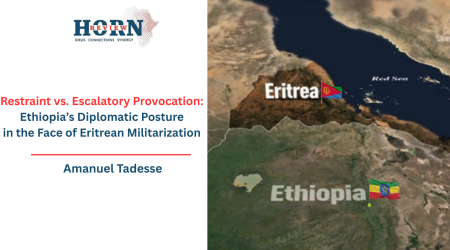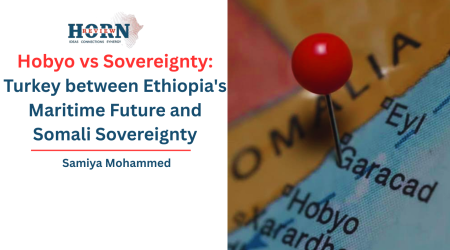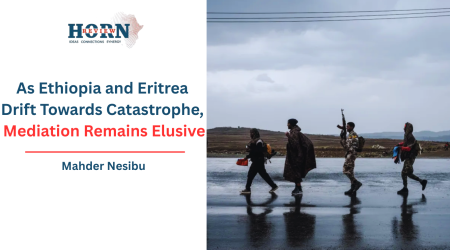
12
May
Beyond Brotherhood: Ethiopia and Djibouti Brace for Egypt’s Red Sea Ascendancy
The enduring partnership between Ethiopia and Djibouti is etched in the bedrock of shared history, interwoven ethnicities, and a profound economic symbiosis spanning centuries. Djibouti, a crucial maritime gateway, has served as Ethiopia’s vital artery to the world, a lifeline forged through colonial realities and strengthened by post-independence pragmatism. However, a new dynamic is emerging in the strategic waters of the Red Sea, with Egypt’s burgeoning naval ambitions casting a long shadow over this established relationship and Ethiopia’s crucial access.
Djibouti’s genesis as a French colony inadvertently gifted Ethiopia its primary trade route via the Addis-Djibouti Railway, a vital link established in 1917. A treaty in 1897 solidified Ethiopia’s port access and French railway rights, navigating colonial boundaries and setting the stage for future cooperation. Even during the Cold War, despite Somalia’s irredentist “Greater Somalia” aspirations clashing with Ethiopia’s historical claims, a 1967 referendum upholding French rule ironically aligned with Ethiopia’s strategic interest in curbing Somali influence in the region.
The dawn of Djibouti’s sovereignty in 1977 marked a turning point. Post-revolution Ethiopia shed its territorial claims, embracing its neighbor’s independence. Diplomatic normalization in 1984 paved the way for joint infrastructure projects, laying the foundation for the modern synergy that defines their relationship today. The exit of Eritrea in 1993 and the subsequent Ethio-Eritrean war post-1998 transformed Djibouti into Ethiopia’s indispensable maritime door.
Infrastructure integration, largely facilitated by China’s Belt and Road Initiative, has deepened these ties immeasurably. Modern railways connecting Addis Ababa to Djibouti’s ports, cross-border power grids established in 2011, and vital water pipelines inaugurated in 2013 emphasize the intricate economic interdependence. Furthermore, joint commissions provide diplomatic frameworks to address shared concerns, ranging from border security and trade to regional stability.
However, Egypt’s burgeoning Red Sea ambitions present a novel challenge to this established dynamic. The establishment of the Southern Fleet Command in Safaga centralizes Egypt’s naval operations with the clear aim of dominating the Red Sea, a move that inherently marginalizes the maritime influence of states like Ethiopia. The acquisition of Mistral-class warships significantly boosts Egypt’s amphibious capabilities near the Bab el-Mandeb Strait, a globally critical trade chokepoint, further solidifying its naval dominance.
Egypt’s “strategic depth” narrative, seemingly aimed at controlling vital maritime routes, heightens tensions with Ethiopia, a nation reliant on unimpeded access through these very waters. Extended military deployments and a sharp focus on Suez Canal security amplify the competition in this increasingly contested zone, potentially at the expense of Ethiopia’s strategic interests and its partnership with Djibouti.
The implications for the Horn of Africa are significant. Ethiopia’s deep port dependency on Djibouti renders it vulnerable to external pressures, including Egypt’s growing militarization of the Red Sea. The risk of “Egyptianization” – Cairo’s potential to exert undue influence in the Red Sea, possibly straining the historically strong Ethio-Djibouti relations cannot be ignored.
So, what strategic pathways might Ethiopia pursue? While the historical and societal bonds with Djibouti are deep and genuine, proactive measures are essential. Ethiopia could strategically forge alliances to diversify its maritime access and potentially renegotiate the dynamics within the Red Sea Council. Creating alliances with non-Red Sea Council members in the MENA region, particularly with states like the UAE, Qatar, and even Israel, could provide cooperative leverage. Furthermore, establishing a robust maritime deterrent capability, even if nascent, and working on counter-security pacts could discourage further encroachment. Initiating inter-state and societal diplomatic efforts to reinforce its regional standing and leveraging its deep economic relations within the Horn offer additional avenues for strategic maneuvering. The enduring love and historical ties between Ethiopians and Djiboutians provide a strong foundation, but navigating the evolving Red Sea landscape requires astute and proactive strategic thinking.
For Ethiopia, the Red Sea’s deepening hues of Egyptian ambition cast a stark shadow over its vital lifeline to Djibouti. As Cairo’s naval might solidifies its grip on these strategic waters, the enduring embrace between Addis Ababa and Djibouti faces an unprecedented test. The Horn of Africa watches, knowing that Ethiopia’s proactive navigation of this evolving maritime reality will not only determine its own economic sovereignty but also the delicate balance of power in a region increasingly defined by external pressures and the strategic imperative of unimpeded access. The love runs deep, but in the Red Sea’s turbulent currents, strategic foresight must be Ethiopia’s guiding star.
By Bethelhem Fikru,Researcher,Horn Review










